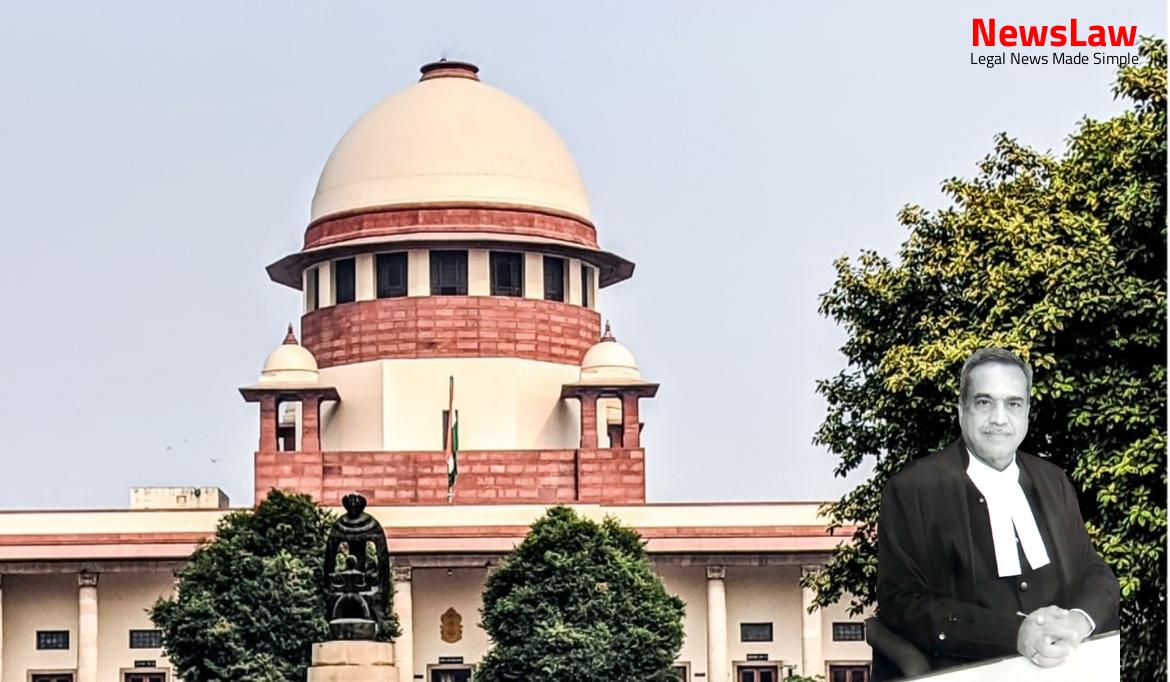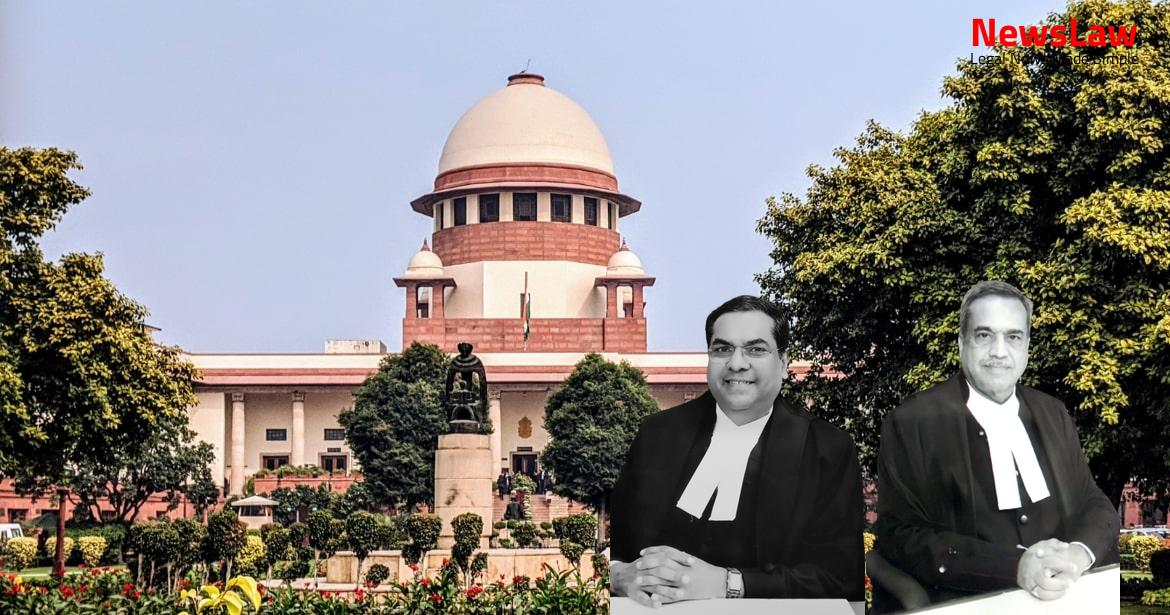In a recent legal case, the court examined the jurisdiction of consumer fora in condoning delays in filing written statements beyond the statutory period. The analysis focused on the court’s interpretation of the Consumer Protection Act and the precedents set by previous judgments. The decision sheds light on the constraints faced by consumer fora in extending the time for filing replies and the implications for future cases. Let’s explore the nuances of court’s legal analysis on the condonation of delay.
Facts
- The National Consumer Disputes Redressal Commission dismissed the appeal and confirmed the State Commission’s order.
- The petitioners filed for condonation of delay in filing the written version, which was beyond the 45-day limitation period under the Consumer Protection Act, 1986.
- The State Commission rejected the petitioners’ application for condonation of delay in filing the written statement.
- Present special leave petition was filed as a result of the rejection by the State Commission.
Also Read: Judicial Review of Delayed Writ Petition
Arguments
- Argued that the State Commission has the power to condone the delay beyond 45 days for filing the written statement under Section 13 of the Act.
- Counsel referred to the Constitution Bench decision in the case of New India Assurance Company Limited v. Hilli Multipurpose Cold Storage Pty. Ltd.
- Cited that the Constitution Bench decision clarified that the District Forum cannot extend the time to file a response beyond 15 days in addition to the 30 days under Section 13 of the Act.
- Emphasized that the said judgment is to be applied prospectively.
- Counsel for petitioners argue that the judgment should be applied prospectively.
- The decision should not be applied to complaints filed before the judgement.
- The decision should not be considered for applications for condonation of delay filed prior to the judgment.
Also Read: Ownership Dispute: Legal Analysis on Admission and Decree
Analysis
- The decision of the Constitution Bench shall be applicable prospectively.
- The State Commission did not condone the delay in filing the written statement despite a relevant judgment.
- The National Commission considered condonation of delay on merits.
- Consumer fora cannot extend the time for filing a reply beyond the statutory period of 45 days.
- The Constitution Bench reiterated that consumer fora have no jurisdiction to accept written statements beyond the statutory period.
- There was no mandate to condone delays in all cases of late written statement submissions.
- The consumer fora has no jurisdiction or power to accept the written statement beyond the period of 45 days.
- This decision is in line with the earlier ruling in the case of J.J. Merchant and the subsequent Constitution Bench decision in New India Assurance Company Limited v. Hilli Multipurpose Cold Storage Pvt. Ltd. (2020) 5 SCC 757.
- The impugned order passed by the National Commission is upheld and the special leave petition is dismissed.
- In the specific part PRE_NOT_RELIED of the judgement, the Court analyzed the effect of non-reliance on previous case law.
- The Court noted that a judgment can be binding precedent only if it decides a principle of law.
- When a judgment is not relied upon for a particular point or principle, it cannot be construed as laying down any principle or ratio decidendi on that issue.
- Non-reliance on a previous judgment does not mean that the principle stated in that judgment is overruled or inapplicable.
- It is important to consider the context and reasoning behind the non-reliance on a particular judgment to determine its continued relevance and applicability.
Also Read: Interpretation of Statutory Limitation under Section 263(2)
Case Title: M/S DADDYS BUILDERS PVT. LTD. Vs. MANISHA BHARGAVA (2021 INSC 81)
Case Number: SLP(C) No.-001240 / 2021



